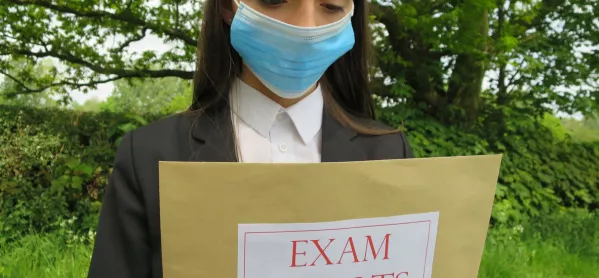The awarding of exam grades is now under way. Both Ofqual and the Scottish Qualifications Authority have so far refused to publish details of how precisely the process will work, so no one knows. Nor have they given clear statements as regards important policies such as the strict adherence (or otherwise) to “no grade inflation”.
As an indicator of what the future might hold, a recent report from FFT Education Datalab compares draft GCSE submissions from 1,900 schools with those from 2019. It suggests that every GCSE subject has been overbid.
If “no grade inflation” is enforced, then we should all expect large numbers - perhaps millions - of downgrades. Many people will be upset: students, parents and carers, teachers and schools. This already appears to be happening following the recently announced International Baccalaureate results.
It is also possible that many students will be treated unfairly. This is not a certainty - no one knows - but it is a possibility.
Grounds for appeal
What is a certainty, however, is that, under the current rules, the only grounds for appeal are very narrow and technical: an appeal that an awarded grade is unfair is not allowed.
That said, on 30 June, Ofqual announced a consultation on statutory guidance in relation to appeals under the Covid regulatory framework. This included, among other things, “the circumstances in which an appeal might be allowed, because the wrong data has been used in the standardisation process”.
There will certainly be much discussion about what “wrong data” actually means. But one outcome that I believe must be achieved is to allow appeals on grounds that are much broader, including that the awarded grade was unfair.
Fortunately, there is a precedent: the SQA has recently confirmed that the appeals process in Scotland will be free, and allow for “further, evidence-based consideration of grades if schools and colleges do not think awarded grades fairly reflect learner performance”.
If this is the case in Scotland, so should it be in England.
Revisiting the rules
The big question, then, is how to influence Ofqual to revisit their rules - which is something that few bureaucracies do with relish.
Certainly, participating in Ofqual’s consultation, which closes on 14 July, is one way. Another is to submit evidence to the Commons Education Select Committee’s inquiry into the impact of Covid-19 on education and children’s services, which explicitly includes within its terms of reference “the effect of cancelling formal exams, including the fairness of qualifications awarded and pupils’ progression to the next stage of education or employment”, and which closes on 21 July.
There are other ways, too - through your MP, through umbrella bodies such as the Association of School and College Leaders, the NAHT school leaders’ union, the Headmasters’ and Headmistresses’ Conference, the Sixth Form Colleges Association and the various unions, and by using social media.
There are of course many issues that need to be addressed to make a fairer appeals process work sensibly, efficiently and effectively - not least how to deter chancers from making spurious appeals. That will take time and good thinking. But it is a problem that can be solved.
A fair appeals process
The fact that this problem exists is not an excuse to say, “It’s all too difficult, so let’s leave everything as it is”. To do that will leave an unknown number of young people treated unfairly, treated badly and possibly missing out on important life chances.
Making the appeals process fair is surely a safe one-way bet. If the fears of the possible unfairness of this year’s grades prove to be unfounded, then the process will not be invoked.
But if those fears of unfair outcomes are proven to be valid, then a fairer appeals process will allow those injustices to be resolved. Which must - in my book, anyway - be a good thing.
Statistical standardisation - the process by which the exam boards make sure that grades are fair between schools and colleges, and that, at a national level, grade distributions are broadly in line with other years - has already started. Presumably, there is now nothing that can be done now to change the outcomes.
By contrast, the appeals process will not come into effect until after the all the grades are announced in August. So there is time to make that process fair. But only if we act collectively and effectively now. And only if Ofqual listens.
Dennis Sherwood has worked with Ofqual on a study of the underlying causes of grade inflation, and has a particular interest in exams and assessment





